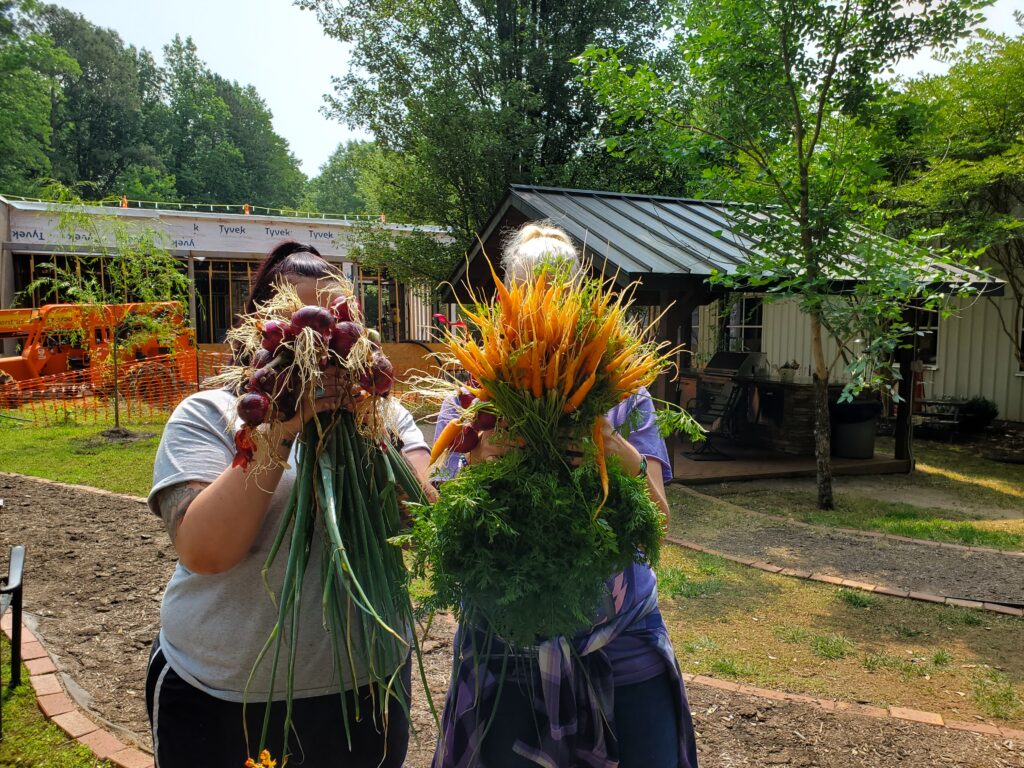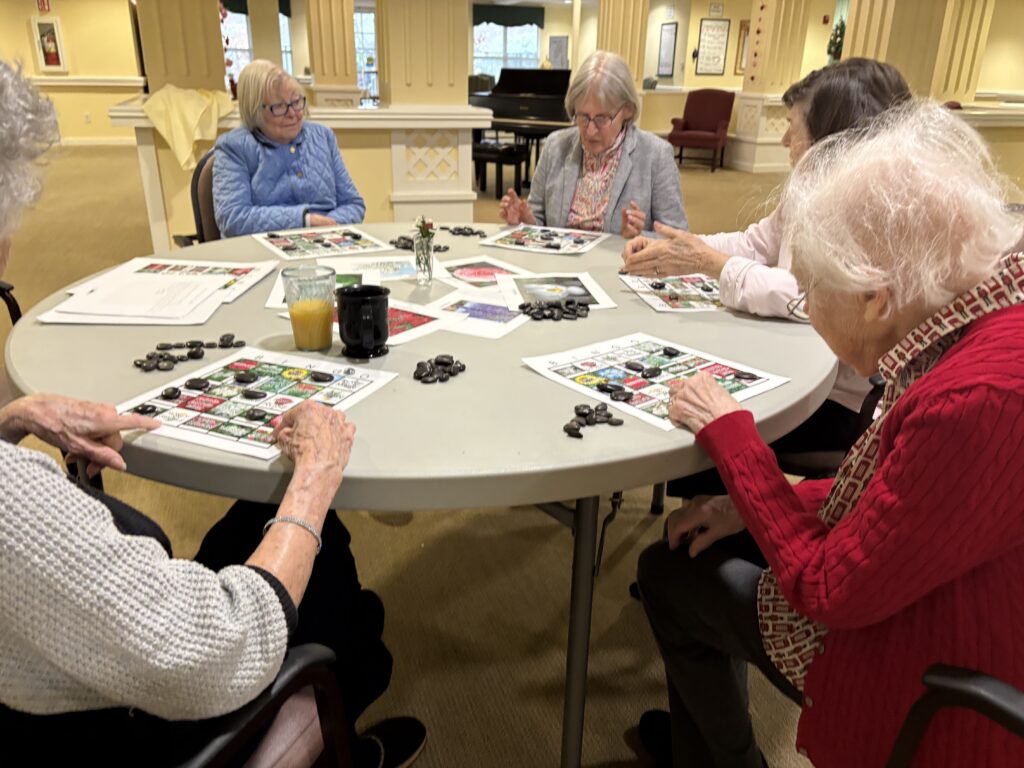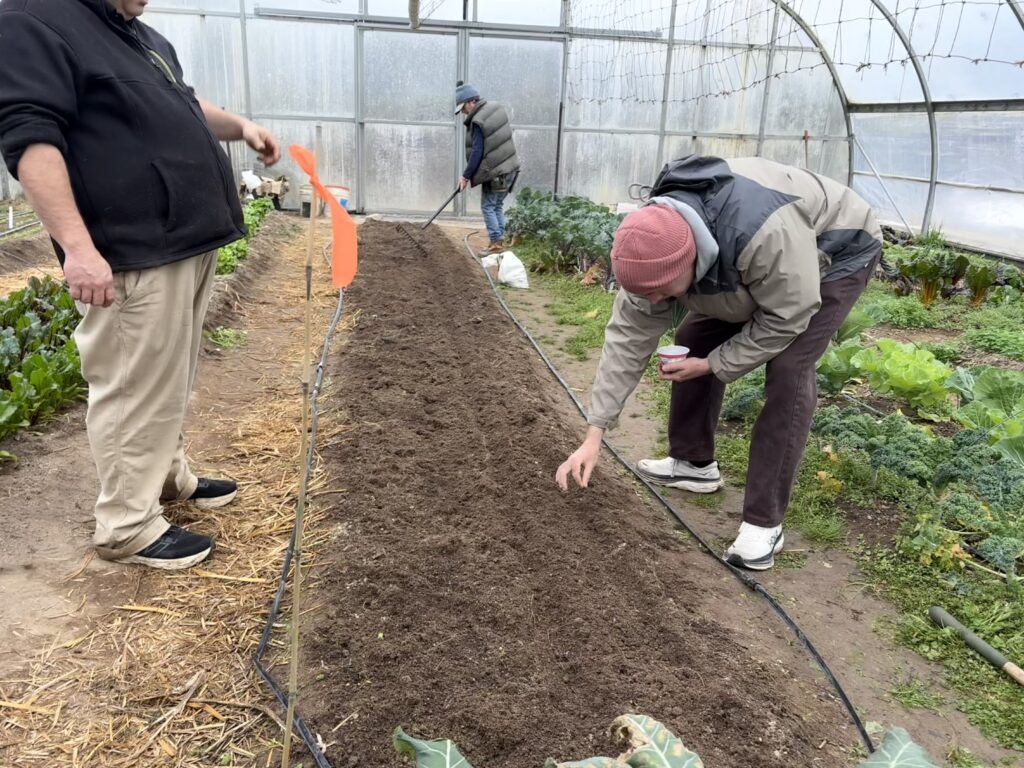Resources for Participants
go.ncsu.edu/readext?236203
en Español / em Português
El inglés es el idioma de control de esta página. En la medida en que haya algún conflicto entre la traducción al inglés y la traducción, el inglés prevalece.
Al hacer clic en el enlace de traducción se activa un servicio de traducción gratuito para convertir la página al español. Al igual que con cualquier traducción por Internet, la conversión no es sensible al contexto y puede que no traduzca el texto en su significado original. NC State Extension no garantiza la exactitud del texto traducido. Por favor, tenga en cuenta que algunas aplicaciones y/o servicios pueden no funcionar como se espera cuando se traducen.
Português
Inglês é o idioma de controle desta página. Na medida que haja algum conflito entre o texto original em Inglês e a tradução, o Inglês prevalece.
Ao clicar no link de tradução, um serviço gratuito de tradução será ativado para converter a página para o Português. Como em qualquer tradução pela internet, a conversão não é sensivel ao contexto e pode não ocorrer a tradução para o significado orginal. O serviço de Extensão da Carolina do Norte (NC State Extension) não garante a exatidão do texto traduzido. Por favor, observe que algumas funções ou serviços podem não funcionar como esperado após a tradução.
English
English is the controlling language of this page. To the extent there is any conflict between the English text and the translation, English controls.
Clicking on the translation link activates a free translation service to convert the page to Spanish. As with any Internet translation, the conversion is not context-sensitive and may not translate the text to its original meaning. NC State Extension does not guarantee the accuracy of the translated text. Please note that some applications and/or services may not function as expected when translated.
Collapse ▲Welcome to the Therapeutic Horticulture Garden!
We’re so glad you’re joining us in the therapeutic horticulture garden! This is a special place designed to foster well-being through engaging with plants and the natural world. Whether you’re a seasoned gardener or have never touched soil before, we believe you’ll find this to be a rewarding and enriching experience.
This page will give you a better idea of what to expect during a therapeutic horticulture session and offer some tips on how to make the most of your time here. If you’re reading this on behalf of someone who is thinking about participating in therapeutic horticulture, you can share these ideas to help them prepare for their first session.
What is Therapeutic Horticulture?
Therapeutic horticulture (TH) uses plants and gardening activities to promote physical, psychological, and social well-being. It’s not just about gardening; it’s about the mindful connection with nature and the sense of accomplishment that comes from nurturing living things. Our sessions are guided by trained facilitators who tailor activities to meet the specific needs and goals of the participants. Sometimes TH happens outside in a garden, raised bed, care farm, or patio; other times, we work with plants indoors.
What Might You Expect During a Session?
Each session can be a little different depending on the season, the specific goals of the group, and the needs of the participants. However, you can generally expect some of the following:
- A Welcoming and Supportive Environment: Our garden is a safe and inclusive space where everyone is encouraged to participate at their own pace and comfort level.
- Guided Activities: A trained facilitator will lead the session, sometimes with assistants or volunteers, providing clear instructions and support. Activities might include:
- Planting seeds or seedlings: Experiencing the beginning of life and the potential within a tiny seed.
- Watering and tending plants: Engaging in nurturing tasks and observing the growth process.
- Weeding and mulching: Gentle physical activity that can be grounding and provide a sense of order.
- Harvesting flowers, herbs, or vegetables: Enjoying the tangible results of your efforts and engaging your senses.
- Creating simple floral arrangements: Expressing creativity and connecting with the beauty of plants.
- Sensory exploration: Engaging with the textures, scents, and colors of different plants.
- Nature-based crafts: Using natural materials for creative expression.
- Mindful observation: Taking time to simply observe the garden and connect with the natural rhythms.
- Games: Nature-inspired games like I Spy, Bingo, Jeopardy, matching… there are many fun ways to learn about plants through play at all ages!
- Opportunities for Connection: You’ll have the chance to connect with others who share an interest in nature and well-being. Sharing experiences and working together can foster a sense of community, grow and maintain social skills, and make new friends.
- Sensory Engagement: Be prepared to engage all your senses – the smell of the soil and flowers, the feel of leaves and petals, the sight of vibrant colors, and sometimes even the taste of freshly harvested herbs or vegetables. There’s nothing like a snack in the garden!
- A Focus on the Process, Not Perfection: Therapeutic horticulture is about the journey of connecting with nature and yourself, not about creating a perfectly manicured garden. Don’t worry about having a “green thumb” – everyone is welcome, regardless of their gardening experience. The focus is on people making progress toward their goals, rather than completing garden tasks.
- Flexibility and Choice: Whenever possible, facilitators will offer options and allow participants to choose activities that resonate with them. You are always welcome to take breaks if needed, and your facilitators have set up the space to make it comfortable for rest.
How to Get the Most Out of Your Session:
Here are a few tips to help you maximize your experience in the therapeutic horticulture garden:
- Come in with an Open Mind: Be open to trying new things and engaging with the activities, even if they seem unfamiliar.
- Engage Your Senses: Pay attention to the sights, sounds, smells, textures, and even tastes of the garden. This mindful engagement can be very grounding and therapeutic.
- Participate at Your Own Pace: There’s no pressure to do anything you’re not comfortable with. Listen to your body and take breaks when needed. Feel free to adapt activities to your abilities, or ask for anything you need to adapt an activity.
- Ask Questions: Don’t hesitate to ask your facilitator any questions you may have about the plants, the activities, or anything else. The only “stupid question” is the one that isn’t asked!
- Share Your Experiences: If you feel comfortable, share your observations, feelings, and insights with the group. Connecting with others can enhance the experience.
- Be Present in the Moment: Try to let go of distractions and focus on the task at hand and your connection with the natural world.
- Notice Small Wonders: Take time to appreciate the small details – the intricate patterns on a leaf, the buzzing of a bee, the feel of the soil in your hands.
- Reflect on Your Experience: After the session, take a few moments to reflect on how you felt and what you noticed. This can help you integrate the benefits of the experience. Some groups have individual or group garden journals to encourage this process.
- Dress Comfortably: Wear comfortable clothing and shoes that you don’t mind getting a little dirty. Consider bringing layers as the weather can change. Hats and sunscreen are also recommended, especially during warmer months.
- Inform Your Facilitator of Any Needs: Please let your facilitator know if you have any physical limitations, allergies, or other needs so they can help you participate safely and comfortably.
We believe that the therapeutic horticulture garden offers a unique opportunity to connect with nature, nurture your well-being, and experience the simple joys of gardening. We look forward to welcoming you and sharing this enriching journey with you!






